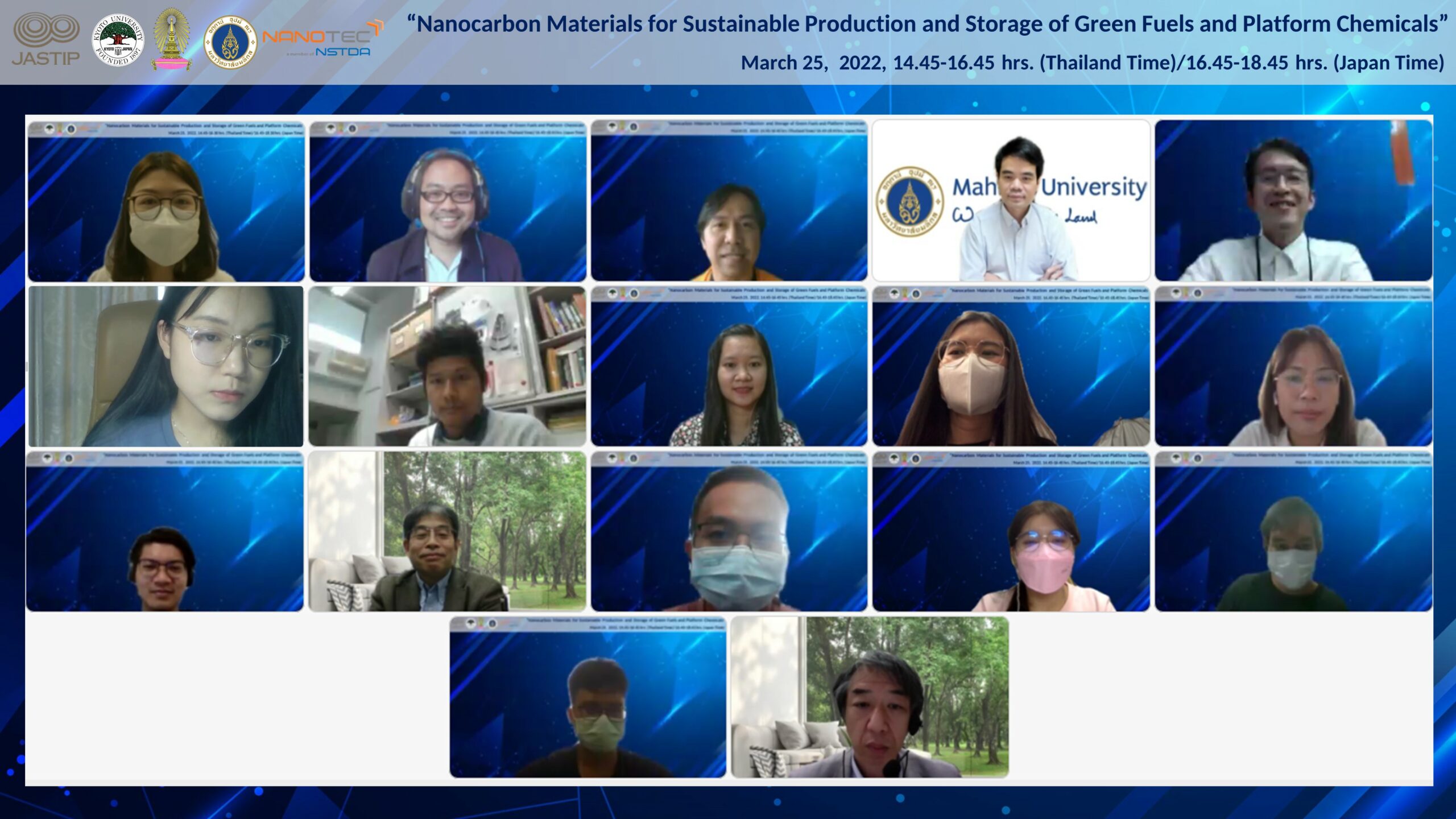
On 25 March 2022, National Nanotechnology Center (NANOTEC), NSTDA, and Chulalongkorn University, THAILAND in collaboration with Kyoto University, JAPAN organized a virtual meeting to update the status of on-going research projects, exchange their knowledge and propose new research projects to continue their collaborations under JASTIP (Japan-ASEAN Science, Technology and Innovation Platform). Also, this year we have speakers from Mahidol University joining in this seminar which is a collaboration between Mahidol University and Kyoto University on Mahidol-Kyoto On-site Laboratory Workshop on Chemical Engineering. This is a good opportunity to expand further collaboration. Over 30 speakers and participants joined in this seminar to exchange their research ideas, knowledge, and work experiences among peers.
NANOTEC, NSTDA and Kyoto University received a grant from JASTIP (Japan-ASEAN Science, Technology and Innovation Platform) phase 2 in the theme of Biomass Utilization Research. The catalytic productions of carbon-based materials, biofuels, and biochemicals are at the heart of biorefinery industry. The collaborative researches carried out by the groups in NANOTEC, NSTDA (Dr. Kajornsak Faungnawakij’s team) and Kyoto University (Prof. Noriaki Sano’s team) aim to develop new and innovative knowledge on biomass conversion or chemical conversion to useful materials, chemicals and fuels such as carbon nanohorn, hydrogen peroxide, biodiesel, and furan compounds. Development and application of carbon nanomaterials, electrochemical devices and plasma technology are of intense focuses. These are our collaborative responsibilities from R&D phase to implementation phase toward achievement of SDGs.
JASTIP program aims to establish the “Japan-ASEAN Collaborative Research Framework to solve the global issues through promoting international collaboration (ASEAN-Japan) researchers in the fields of environment & energy, bio-resource & biodiversity, and disaster prevention and to implement the collaboration research outcomes. JASTIP program phase 1 has started in 2016 and continue to phase 2 which the transition from basic research in first phase collaboration research laboratories to social implementation.
|
Japan–Thailand Joint Seminar under JASTIP Program on “Nanocarbon Materials for Sustainable Production and Storage of Green Fuels and Platform Chemicals”

Share :

